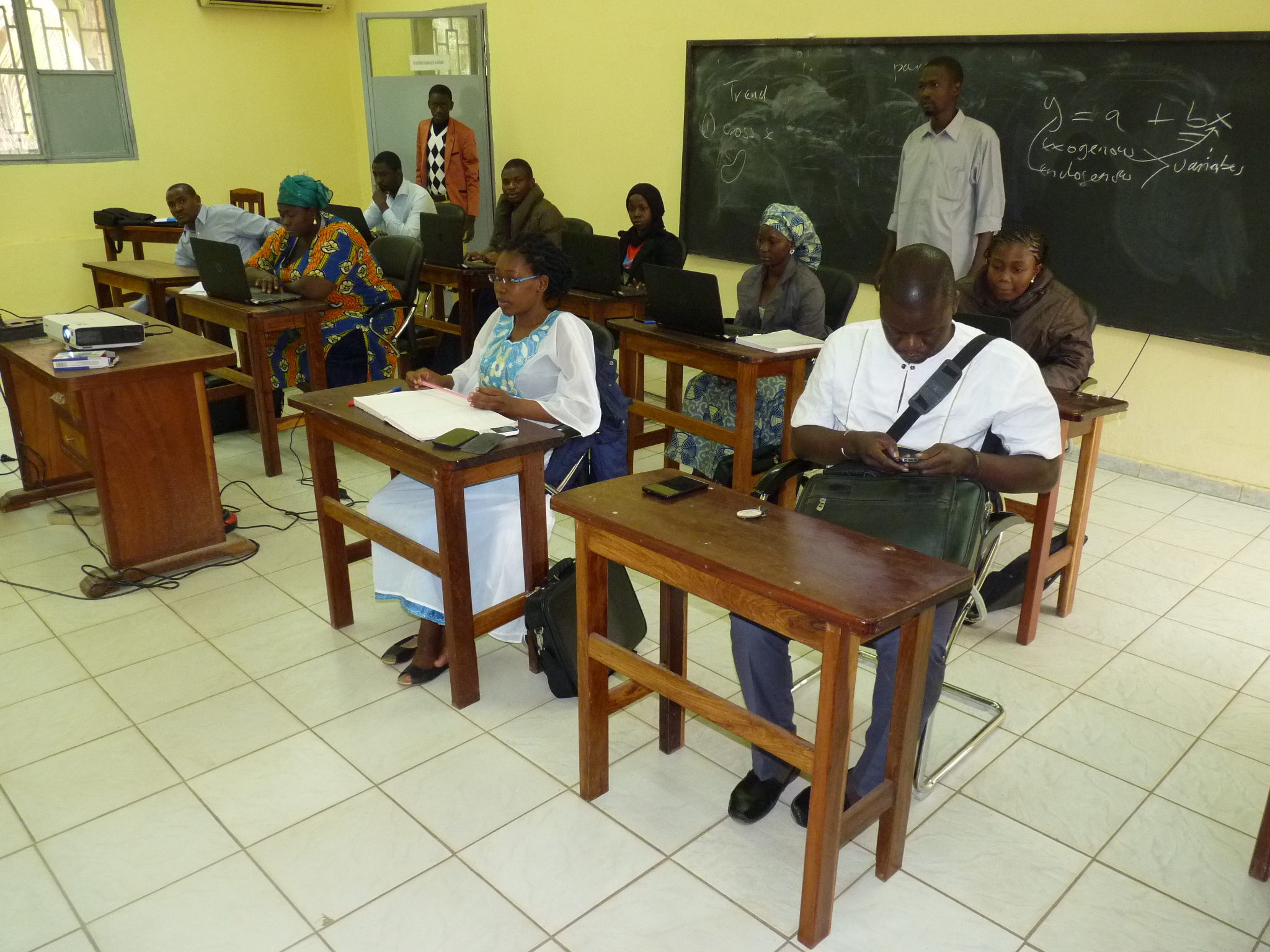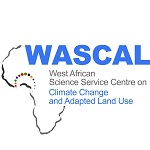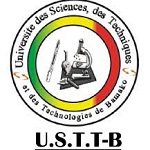Together, shaping sustainable solutions for our territories.
The PhD programme DSP CC & Agric trains researchers to address the challenges of climate change and agriculture in West Africa.
Programme at a glance
A rigorous doctoral track, grounded in West African realities, to train researchers who think globally and act locally.
Structured pathway
46 months: language training, intensive courses, fieldwork & data collection, writing and defense.
- Climate/agriculture fundamentals
- Methodology & modeling
- Field immersion
High-level supervision
Mixed thesis committees (Mali & international partners), personalized supervision and regular seminars.
- Multidisciplinary committee
- Writing workshops
- Co-supervision
Network & mobility
Access to partner labs, research stays in Germany and across West Africa.
- WASCAL partnerships
- DAAD scholarships & support
- Research visits
Programme objectives
Train scientific leaders who can turn climate and agricultural challenges into sustainable opportunities for West Africa.
Scientific excellence
Produce innovative, rigorous research on climate–agriculture interactions to inform public policy.
Applied skills
Develop doctoral candidates’ capacity to design and implement technical solutions adapted to local realities.
Cooperation network
Strengthen South–South and North–South scientific exchanges to maximize research impact.
Societal impact
Translate scientific results into concrete actions benefiting rural and urban communities.
Programme structure and duration
A four-phase doctoral journey designed to train excellent researchers.
-
Phase 1: Intensive courses
6 monthsFoundations in climatology, agriculture, research methods, and analytical tools.
-
Phase 2: Field research
18 to 24 monthsOn-site data collection and analysis, aligned with local and regional challenges.
-
Phase 3: Stay in Germany
3 to 6 monthsInternational scientific collaboration and methodological refinement within partner institutes.
-
Phase 4: Writing and defense
6 to 9 monthsThesis writing, scientific publications, and defense before an international jury.
Research axes
Themes grounded in West African realities, at the crossroads of climate, agriculture and public policy.
Climate & variability
Climate dynamics, weather extremes, regional trends and impacts on agro-pastoral systems.
- Weather & extremes
- Climate indices
- Seasonal forecasting
Sustainable agriculture & innovation
Resilient farming practices, ecological intensification, frugal technologies and local innovations.
- Agroecology
- Biochar & soils
- Technical pathways
Resilience of agro-ecological systems
Adaptive capacity of agro-ecosystems to climatic hazards and environmental pressures.
- Ecosystem services
- Water & soils
- Adaptation
Modelling & decision-support tools
Climate–crop models, scenarios, GIS and dashboards to guide technical and policy choices.
- GIS & remote sensing
- Scenarios
- Dashboards
Vulnerability & food security
Household exposure, access to resources, risks and levers for sustainable food security.
- Risks & livelihoods
- Markets
- Nutrition
Public policy & climate governance
Institutional frameworks, local participation, climate finance and multi-level governance.
- Agricultural policies
- Governance
- Climate finance
Eligibility criteria
Before applying to the Doctoral Study Programme on Climate Change and Agriculture (DSP CC & Agric), make sure you meet all the criteria below. We aim to select the most motivated and best-prepared candidates to tackle climate change challenges in West Africa.
- ✅ Be a national of a WASCAL member country
- ✅ Hold a relevant Master’s degree
- ✅ Be 40 years old or younger
- ✅ Good command of French and English
- ✅ Available full-time for 3 years

Are you a national of a WASCAL member country?
Do you hold a Master’s degree in a relevant field?
Will you be 40 or younger on the application deadline?
What is your proficiency level in French?
What is your proficiency level in English?
Will you be available full-time for the entire programme (3 years)?
📝 Application process
Follow these simple steps to join the DSP CC & Agric and help shape sustainable solutions for West Africa.
Check your eligibility
Make sure you meet the criteria using our interactive eligibility tool.
Prepare your documents
Gather your CV, diplomas, transcripts and motivation letter.
Submit your application
Complete the online form and upload your supporting documents.
Selection interview
Shortlisted candidates will be invited to an online interview.
Admission confirmation
Receive your admission letter and join the WASCAL Mali community.
Programme benefits
A demanding doctoral track, rich in scientific, human and professional opportunities.
Excellence in supervision
Multidisciplinary thesis committees, co-supervision and regular seminars for individualized guidance.
Laboratories & resources
Access to analytical platforms, digital libraries, and modelling & GIS tools.
WASCAL network
South–South and North–South collaborations, regional school, and strong links with ministries and agencies.
International mobility
Research stays in Germany and across West Africa to strengthen skills and partnerships.
Employability & impact
Publications, applied projects, policy transfer and strong employability.
Supervision & scientific network
A robust academic framework supported by national and international partners to ensure excellence.
Meet the supervisors







They share their experience with the DSP CC & Agric
Discover inspiring alumni journeys and their vision for addressing climate challenges.

“The CC & Agric DSP has transformed my career. The resources, trainers, and scientific network are exceptional.”
Dr. Awa Traoré
Alumni — Cohort 2020Frequently Asked Questions
Find answers to the most common questions about the DSP CC & Agric.
